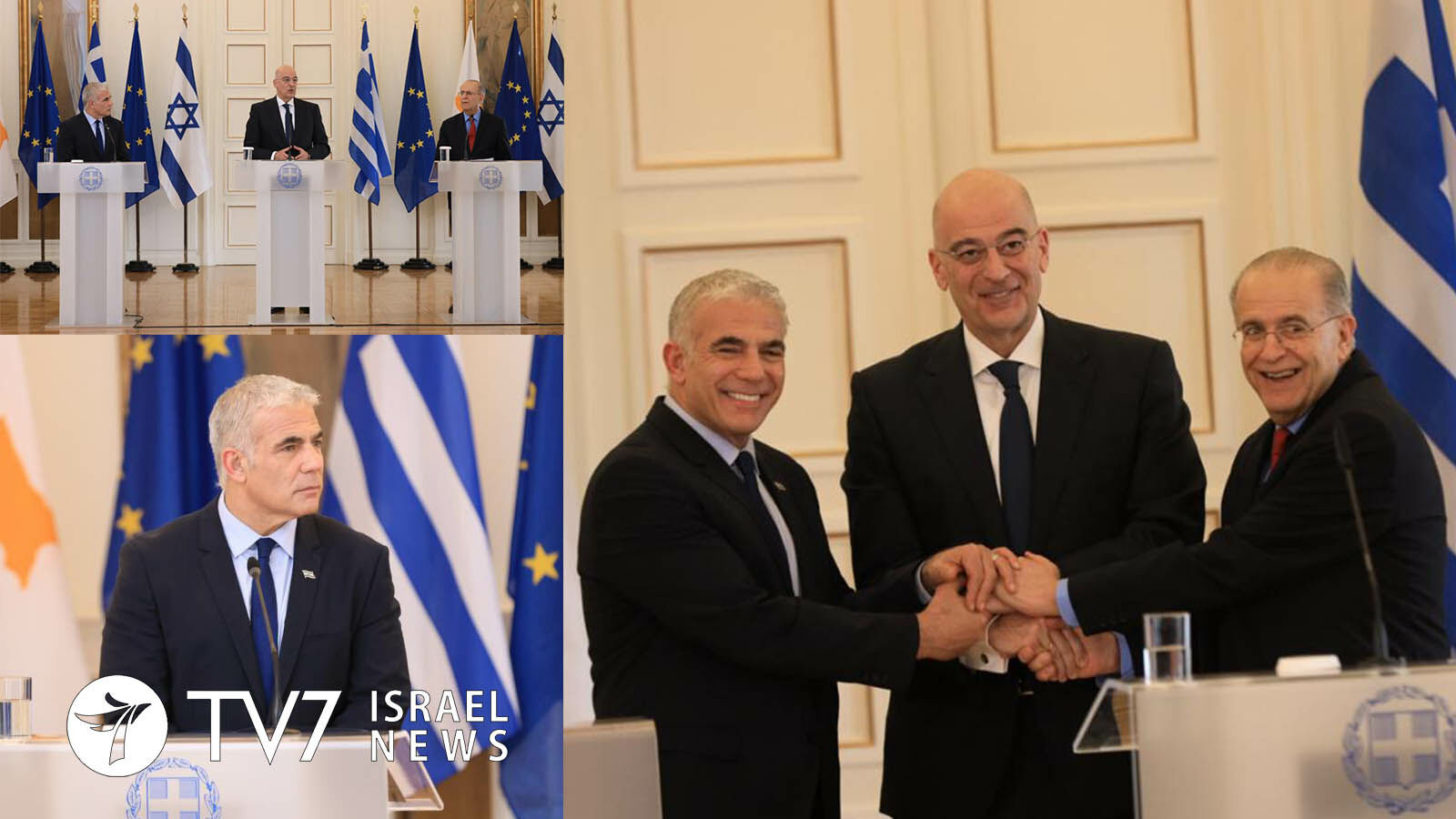There is renewed focus on cooperation by the three countries on natural gas pipeline projects to relieve European energy dependency on Russia in the wake of the war in Ukraine.
By Erin Viner
Israeli Foreign Minister Yair Lapid, who met his Greek and Cypriot counterparts in Athens, said that Russia’s 24 February invasion of Ukraine has changed the structure of the energy market in Europe and in the Middle East.
“We are meeting in complicated times,” said Lapid, who also serves as Israel’s Alternate Premier. Reiterating his condemnation of Russian “war crimes” that have “soaked the ground with the blood of innocent civilians,” he stated “but there is also a point of light in this darkness: the world is not silent. The world isn’t cynical, it isn’t driven purely by interests and economic benefit. A coalition, rare in size and power, has come together to help Ukraine, and to stand by its side.”
Speaking alongside Greek Foreign Minister Nikos Dendias and Cypriot Foreign Minister Ioannis Kasoulides, Lapid said, “It was important to me to come here, and to strengthen this commitment further.”
Jerusalem’s top diplomat stressed that tripartite cooperation between the countries is “First and foremost, in regional security. Our ability to cooperate in security is critical for the safety of our citizens, and to fight terrorism in the region.”
Pointing out that “ the war in Ukraine stands to change the structure of the European and Middle Eastern energy market,” Minster Lapid said Israel, Greece and Cyprus “are also examining additional economic cooperation, with an emphasis on the energy market. There are risks here, but there are also opportunities which we must examine together.”
The three allies, he said, would seek to boost their energy ties and expand their interaction in the coming months to include more countries.
The European Union has announced its intention to reduce its reliance on Russian gas by two-thirds this year and end all Russian fossil fuel imports by 2027 as a consequence of Ukraine invasion.
Jerusalem, Athens and Nicosia have agreed to build the Euro-Asia interconnector, which will be the world’s longest and deepest underwater power cable that will traverse the Mediterranean seabed and link their electricity grids. The project is slated for completion in 2024.
An additional deal in which the three have been planning for several years is the EastMed subsea pipeline that is designed to supply Europe with natural gas from the eastern Mediterranean.
Cypriot Foreign Minister Kasoulides said both projects are advancing, and that he and his Greek and Israeli counterparts “are confident that when materialized they will have another practical and geostrategical value for the Eastern Mediterranean and the European Union.”
Referring to Israel’s “welcome and timely” improvement in ties with Turkey, which Minister Lapid describes as “a great opportunity to deepen the ties between us and strengthen regional stability,” he went on to reassure Greece and Cyprus that, “As always, we will do this in full coordination with you.”
The two nations seek to cool years of disputes, primarily over Israel’s presence on the West Bank as well as Turkish support for the Islamist Hamas terror group that controls Gaza.
Cash-strapped Ankara has also been embroiled in major disputes with Greece and Cyprus over maritime jurisdiction in the East Mediterranean, as well as the migrant crisis in Europe; and is seeking economic relief by forging lucrative energy development with his regional neighbors, including Israel.
